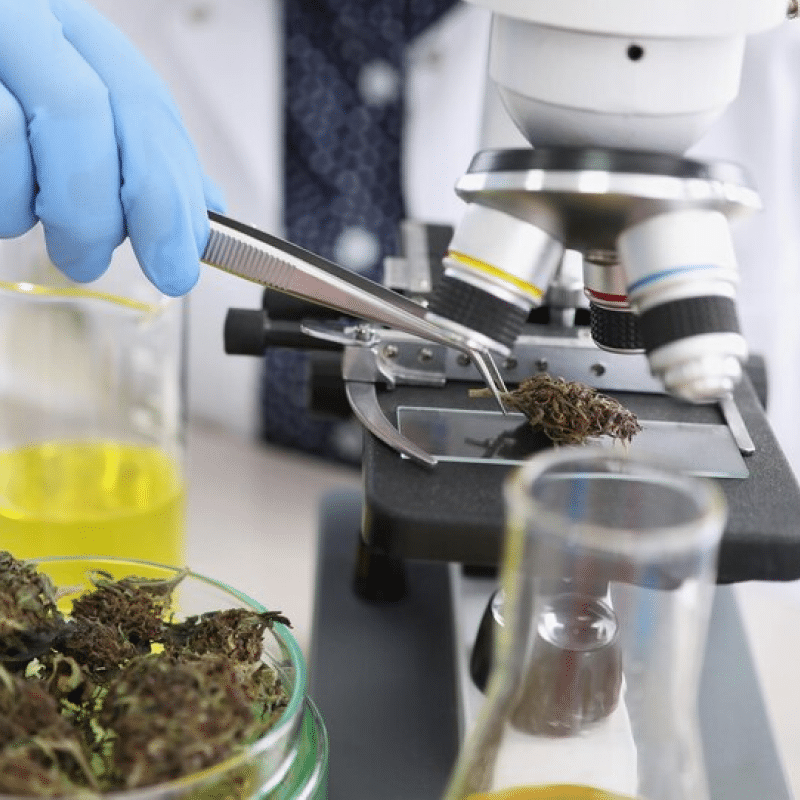Cannabis Laboratory Insurance
Cannabis laboratories are essential to the industry, ensuring the safety and quality of cannabis products through rigorous testing. However, these labs face unique risks, from equipment failures to regulatory challenges. AlphaRoot offers comprehensive insurance solutions designed to protect your laboratory from these hazards, allowing you to focus on accurate results and innovation.


AlphaRoot: Protecting the heart of cannabis research and testing
AlphaRoot specializes in cannabis industry insurance, providing extensive experience in supporting cannabis laboratories, research facilities, and testing organizations. We understand the distinct challenges labs face—equipment breakdowns, errors in testing, and compliance issues. Our tailored insurance solutions ensure your laboratory stays protected, efficient, and compliant.
How AlphaRoot Simplifies Laboratory Insurance
AlphaRoot makes securing cannabis laboratory insurance straightforward and efficient with:
Personalized Consultations
We offer a free, detailed consultation to assess your lab’s specific risks and guide you to the right coverage options.
Customized Plans
Flexible insurance solutions designed to meet the unique needs of testing, research, and product development labs.
Ongoing Support
Continuous support from our team ensures your lab remains protected and compliant as industry challenges evolve.
What Clients Say
AlphaRoot helped us secure the perfect insurance coverage for our cannabis testing lab. Their team explained everything clearly and tailored a policy that met all our needs. We’re confident knowing our lab is well-protected.
AlphaRoot’s personalized approach to insurance sets them apart. They truly understand the needs of Cannabis Laboratories.
Who We Work With
AlphaRoot collaborates with cannabis laboratories and research organizations to provide insurance tailored to their needs:
Cannabis Testing Laboratories
Comprehensive coverage for every aspect of your operations, from equipment protection to liability for testing results.
Research Facilities
Tailored insurance for labs conducting cannabis research and development, ensuring compliance and asset protection.
Cannabis Product Development Labs
Specialized coverage for labs focused on creating new cannabis products, safeguarding intellectual property and physical assets.
Get Started Today
Ready to protect your cannabis laboratory? AlphaRoot offers customizable insurance solutions to safeguard your lab from risks and ensure compliance. Contact us today for a free consultation and personalized quote.


Stay Informed
Stay ahead of industry trends and compliance requirements with AlphaRoot’s expert insights. Subscribe to our newsletter for updates and best practices tailored to cannabis laboratories.
FAQs
Labs typically require general liability, professional liability, equipment breakdown, property, and workers’ compensation insurance to cover their operations fully.
Costs vary based on lab size, equipment, and activities. Contact us for a tailored quote to meet your lab’s unique needs.